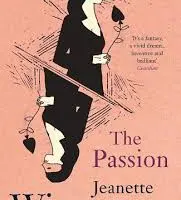Memoirs of a good-for-nothing, by Joseph von Eichendorff
Memoirs of a good-for-nothing is one of the most charming books I’ve read in ages. Written back in 1826, it’s the story of how an amiable idiot goes out to seek his fortune but instead finds love and adventure, without ever understanding anything that’s going on around him.
The novella opens with our hero waking up to his father’s complaints that once again he’s been sleeping while others worked, that he’s a good-for-nothing and should go out and earn his own living.
“So I’m a good-for-nothing, eh?” I retorted. “All right, then. I’ll go off and seek my fortune.”
The idea was indeed very much to my liking. In autumn and winter the yellowhammer used to sing a lament outside our window: “Farmer, please hire me! Farmer, please hire me!” But a short time ago I had seen him sitting proudly on top of the tree, singing his merry springtime song: “Farmer, keep your work!” – and this had given me the idea of making for the open road.
So he heads off down that road, singing and playing his fiddle. Before too long he meets two beautiful ladies, countesses it seems, who enjoy his happy folksong and invite him to join them in their carriage bound for Vienna – or more precisely to a palatial country estate just near Vienna.
The estate’s a confusing place, for our young man is fresh from a village and knows nothing of domestic servants or the doings of the nobility, but no matter, for he has fallen in love with the younger of the two ladies he just met and besides in no small time he has a job as an assistant gardener and then as tollkeeper to the estate – a position of some responsibility, even if largely his duties involve smoking a pipe and sitting outside in a particularly lurid dressing gown. Once he’s pulled up the vegetables in the tollhouse garden and planted flowers in their place, well, if it wasn’t for the difficulty of seeing his love (their stations are very different) he’d be a happy man.
But then, he’s almost always a happy man anyway. Our hero is prone to bursting into song on seeing a pretty view, plays his fiddle at the slightest provocation (or just for the sheer enjoyment of it), he jumps for joy when he has a happy thought, and he has a lot of happy thoughts. When sadness strikes him, or anger, it’s like a summer squall of rain, soon past. He cries bitter tears more than once in his journeys, but his heart is an optimistic one and he’s never sad for long.
And that, in a nutshell, is what makes this such a likeable book. The protagonist is incredibly naive, and none too bright, but he’s good natured and well meaning and I found him impossible to dislike. There’s such an overabundance of joy in this novel, sheer joy of life, in art and music, in love and in the German and Austrian countryside and its beauties, it’s a story free of cynicism and that’s no common thing.
Of course, life as a tollkeeper is not the end of our hero’s travels. Soon, believing his love’s heart belongs to another, he leaves for Italy with two itinerant painters, spends time in a remote mountain castle staffed with people he has no common language with but who seem to be expecting him, visits Rome where he has various adventures and generally gads about the place. He’s chased by a mysterious hunchback, his companions are stolen from him, all manner of incident occurs, none of which he has the remotest clue about.
I journeyed onwards day and night without rest. I had no time to collect my thoughts, for wherever we stopped, fresh horses were waiting ready harnessed; moreover I could not speak to the people, and my gesticulations served little purpose. Sometimes, when I was in the middle of an excellent meal at an inn, the postillion would blow his horn and I had to drop my knife and fork and jump back in the coach, without having the slightest notion where I was supposed to be going at such breakneck speed, or why.
There’s an air of Shakespearean comedy to much of this work. Our hero is pursued by people, but it’s wholly unclear for most of the book why, or even if they’re after the right man, and although he finds some of them frightening in truth none of them really seem all that menacing. Our hero isn’t a man prone to questions, or reflection for that matter, and for a good chunk of the novella he can’t speak the local language anyway, so though it’s obvious something’s going on it’s not until the end it’s terribly clear what (and I don’t think he ever really works it all out).
It doesn’t matter though, because Germany and Austria are beautiful, because a wandering man with a fiddle can cause a whole village to leap up and start dancing, and because whatever’s going on our hero is guided by love and by desire for adventure and he’s basically a good person. And this is not a story in which bad things happen to good people.
Much of Memoirs is very funny. The hero has a habit of falling asleep whenever nothing much seems to be going on, leading to him missing out on quite a lot that happens. His misunderstandings lead to bizarre and comical situations, and his own emotions are so changeable that at any moment he can plunge from joy to despair and back again. There’s also some wonderful set pieces. Here he’s in Rome, and encounters a parrot in an open window above him:
Then I tried to start up a conversation with the parrot, for it gave me great pleasure to watch him clamber up and own in his gilt cage and perform all manner of contortions, in the course of which he always contrived to trip over his big toe.
Suddenly he shouted “Furfante!”* at me, and even though he was only a stupid animal, this annoyed me. So I called him an insulting name in return, and we both got angry; the more I insulted him in German, the more he shrieked away in Italian.
There’s an equally marvellous sequence where, as he enjoys a secluded mountaintop view, a group of musicians creep up behind and strike up their instruments believing him to be an English nobleman on the Grand Tour and hoping to earn some money from him. The image of young English lords being surprised by lurking bands of mountaintop musicians was one I just couldn’t resist.
More seriously, it’s a work of German romanticism (a genre I know a bit, but not well). There’s a well written introduction by the translator, Ronald Taylor, where he writes that the essence of German romanticism is a Holy Trinity of Nature, Love and Art and their connection with the soul of the German people. The novel’s a paean of love to Germany, to the German nation, and while naturally it’s hard for a modern reader to read of German “national spirit” without unfortunate connotations creeping in, that’s not really von Eichendorff’s fault.
Memoirs makes a marvellous counterpoint to The Black Spider, both are nineteenth Century pastoral novels and both I think come from a common cultural tradition, but where one is a dark tale of divine retribution the other is an idyll in which good is rewarded and nobody is really very evil. It’s also a tremendous corrective. If you’re finding yourself bogged down in a literary great which is heavy going, or depressed by a tale of unusual bleakness or cynicism, then Memoirs is as bright a contrast as you might wish for.
It’s taken me a while to warm to Oneworld Classics, with my reading this year though I’m seeing how they live up to their title. It’s marvellous to see these works being translated, German classics, Italian ones, a wealth of European literature that has tended to be obscure to English speaking readers – and like The Black Spider this is a fresh and enjoyable translation. Couple all that with good paper and print and attractive covers, and I expect to be reading more of them as the year goes on.
Finally, it’s worth noting that Memoirs is full of folksongs, Eichendorff was primarily a poet and lyricist. I’ve not quoted those songs here, for reasons of space, but one of von Eichendorff’s poems (not from this book) can be found here, with different translations of it being set side by side. Interesting stuff.
*Scoundrel. The endnote is in the original.












